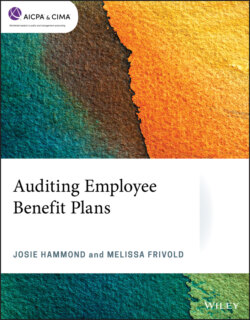Читать книгу Auditing Employee Benefit Plans - Josie Hammond - Страница 43
Unrelated business income tax
ОглавлениеThough employee benefit plans are generally exempt from Federal income tax, they can still be exposed to income tax in certain situations. This tax is reported on Form 990-T. If the income is significant, the plan must also file quarterly tax payments.
If the plan invests in a pass-through entity – a partnership or S corporation – and that entity is engaged in a trade or business (as opposed to simply investment activity), then the plan will report unrelated business income on its share of any pass-through income. ESOPs are exempt from that tax to the extent that the pass-through income is associated with “qualifying employer securities” as defined in IRC Section 409(l).
Another common source of unrelated business income arises when a plan incurs debt to acquire an investment. For example, if securities are acquired by a plan on margin, unrelated business income tax may apply. There are exemptions from this rule relating to certain debt-financed real estate rental investments and leveraged ESOPs. This rule becomes complicated when the plan invests in a pass-through entity. That entity may generate investment income, but if it uses debt financing to generate that income, the plan could be subject to unrelated business income tax.
Audit procedures could include inquiring of plan trustees regarding their controls over the determination of unrelated business income, receipt of any income tax reports – Schedules K-1 for pass-through entity investments or other steps to manage this area. A properly completed Schedule K-1 should acknowledge the existence of unrelated business income by including the amount in Box 20 and designating it with a Code V. The plan, as a partner, is required to notify the entity of its tax-exempt status. Thus, the absence of the Code V designation may not be determinative if the plan never notified the entity that it was tax-exempt or if the preparer is unfamiliar with the importance of the coding.
Finally, welfare benefit plans may be subject to a special form of unrelated business income tax, which is incurred only if the plan’s assets exceed certain funding limits. These rules are found in IRC Sections 419 and 419A.
In the event a benefit plan has significant exposure to this tax, the auditor will also need to assess the effect of any uncertain tax positions under FASB ASC 740, Income Taxes. As described earlier in this chapter, the plan’s tax-exempt status is also a tax position that must be considered under this standard. Other tax positions would relate to the status of income as subject to unrelated business income tax and where the income is subject to unrelated business income tax, the determination of the amount and timing of items of income or expense. This is not merely a Federal tax consideration. Many states also impose this tax.
